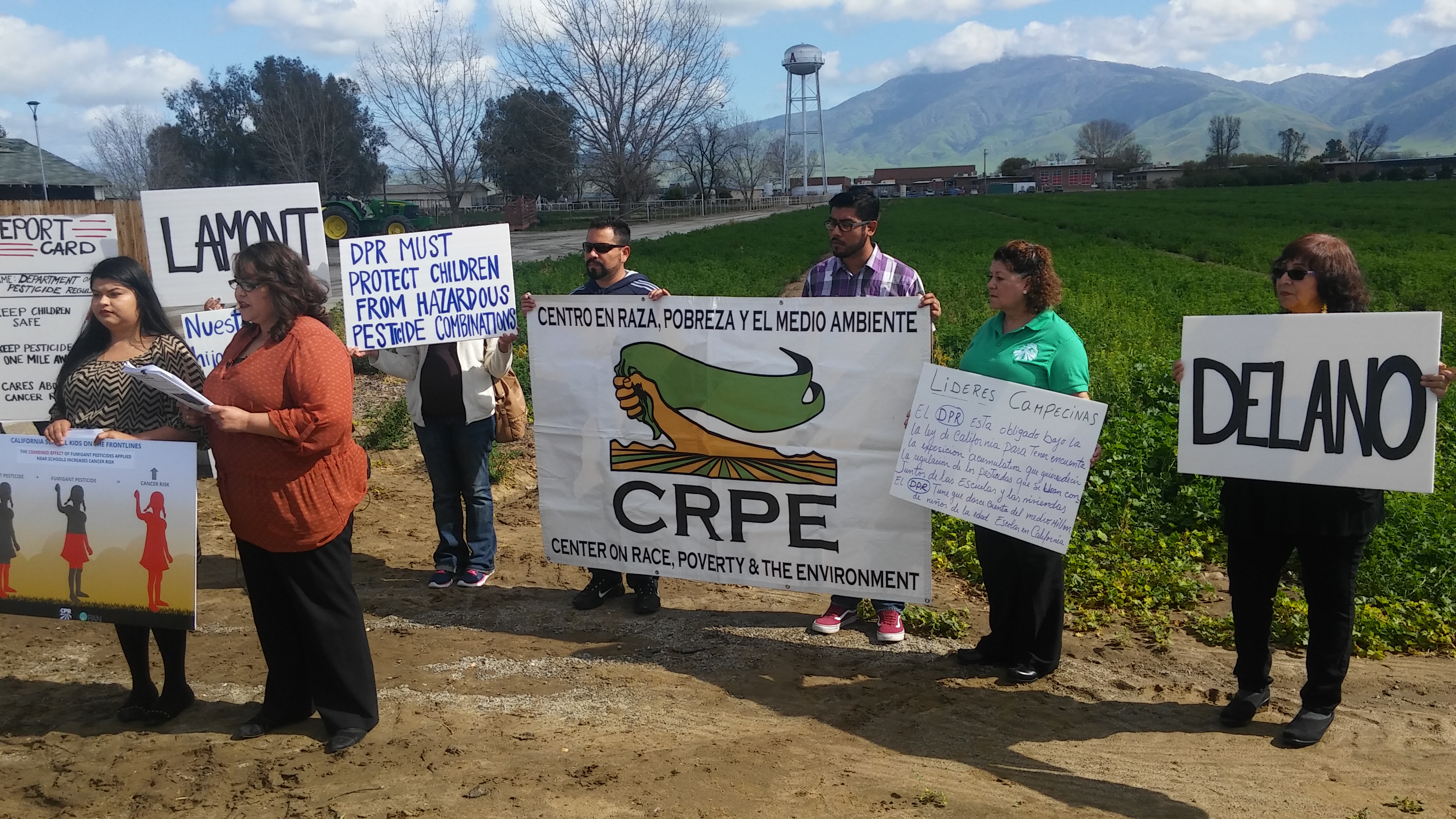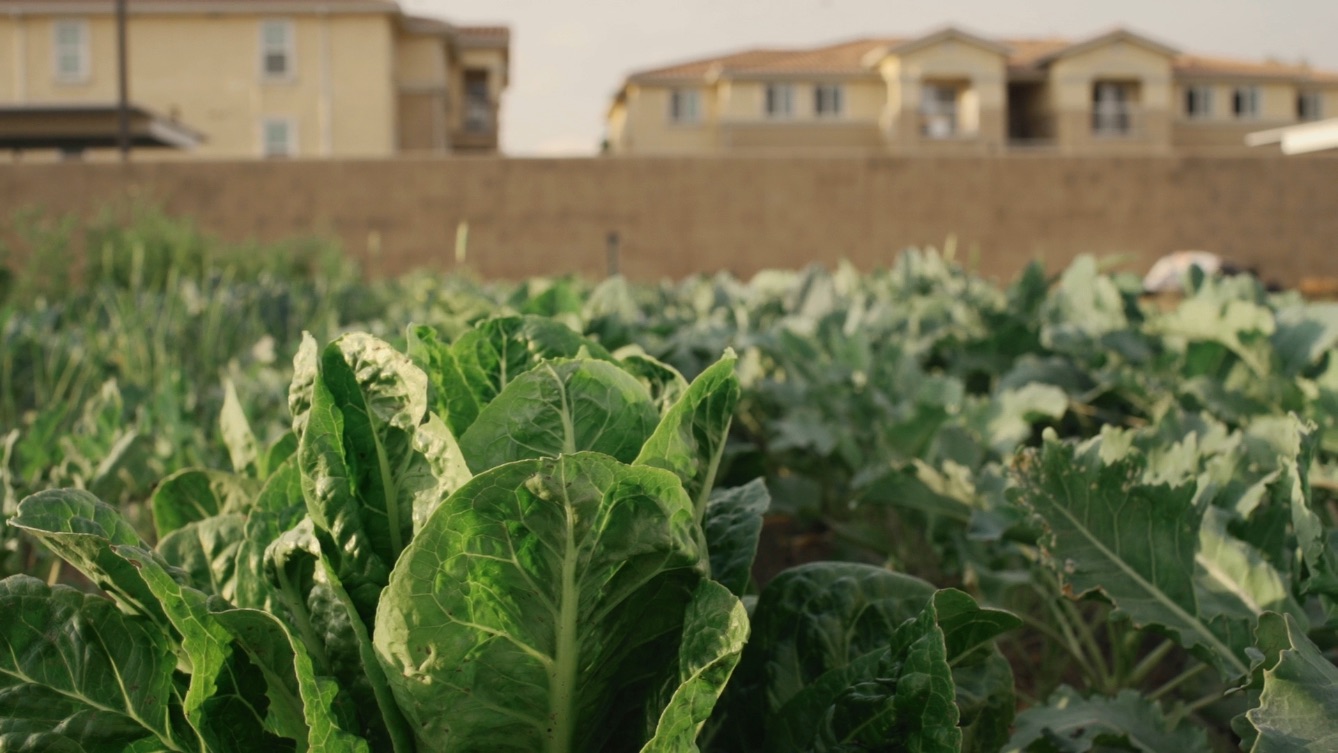
Pesticides have an especially harmful effect on farmworkers, but also on nearby communities due to pesticide drift. Exposure to pesticides has been linked to serious health issues ranging from cancer to developmental issues in children. Pesticides also form compounds that contribute to poor air quality, and the San Joaquin Valley has some of the worst air in America. The Valley regions of Fresno-Madera, Visalia-Porterville-Hanford, Bakersfield and Modesto-Merced repeatedly rank in the top 5 for the worst ozone pollution and fine particulate pollution, according to the American Lung Association. Pesticides rank among the top contributors to that pollution.
CRPE’s approach to tackling pesticides is twofold. First, we organize and educate residents about the realities of pesticides. Farmworker and farmworker communities historically have been systemically denied access to accurate information about the dangers of pesticides, some reporting that they are simply called “medicine” for the crops. By conducting community meetings and holding regional trainings, we are taking the first step towards healthier communities. Second, we help to push for stricter pesticide regulations by educating legislators and connecting key decision makers with impacted residents. Past victories have included the adoption of a quarter mile buffer zone between pesticide application and schools in Tulare County and the adoption of the first ever air pollution restrictions for pesticides. Our current campaign is focused on ending telone banking, calling for a minimum one mile buffer zone between schools and pesticide applications, and improving the pesticide notification project in Kern County.
Telone Banking
Telone, a fumigant and commonly used pesticide, is a known carcinogen that is heavily used in Kern County and other parts of California. Due to public health concerns and after a period when Telone was completely suspended, the Department of Pesticide (DPR) created a banking system which allowed farmers to use 90,000 lbs of Telone each year and also “bank” unused chemicals from the previous years.
This past year, DPR came out with new regulations in which the ending Telone banking but raised the annual cap by 50%. These regulations are a simply a wolf in sheep clothings that ignore the voices and health concerns of communities that live in agricultural regions. CRPE along with Californians for Pesticide Reform and Pesticide Action Network of North America continue to advocate for just regulations that will take into account the communities on the front lines.
Pesticide Buffer Zones
For schoolchildren in agricultural communities, going to school can mean risking health through pesticide exposure. There is currently only a quarter mile buffer zone. However, dangers from pesticide exposure can occur at a quarter mile. Along with our partners, CRPE works towards a minimum one mile buffer zone between schools and pesticide application.

